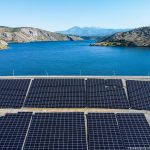G20 leaders failed to show leadership in the ongoing negotiations for a strong climate agreement to be concluded in Paris. The representatives of the richest countries in the world did not make any new commitments to tackle climate finance, phase out fossil fuel subsidies and establish a long term goal for decarbonizing the economy.
‘Paris’ was high on the agenda of this year’s G20 Summit, which took place on 15 and 16 November in Antalya, Turkey. First of all, the governments of the G20 had to respond to the horrific events of 13 November, but they also had to give a crucial political signal for the upcoming Paris Climate Summit that will start in exactly two weeks time.
With quite a number of important issues still under discussion, the G20 Summit was the last major opportunity for leaders to boost momentum ahead of Paris. And who better could have done that than the leaders of the 20 biggest economies, who together are responsible for 70% of total emissions.
‘The G20 leaders failed to grapple their chance to show to the world community that they can be united to deal with the challenges we are confronted with,’ said Wendel Trio, director of Climate Action Network (CAN) Europe. ‘Now was the time to agree on specific measures to tackle climate change and limit fossil fuel pollution, and make progress on some of the crunch issues. We are disappointed our leaders failed to do so.’
CAN Europe is especially critical about the following points:
Climate finance: the developed country leaders failed to assure poor countries that the 100 billion US dollar that is promosed to flow every year by 2020 will indeed be provided.
Fossil fuel subsidies: Since 2009, G20 countries have promised to phase out ‘inefficient’ fossil fuel subsidies. But as recent reports have shown, such as last week’s from Oil Change International, the G20 in total still spend 452 billion US dollars on fossil fuel subsidies annually. These handouts result in a continued lock-in of fossil fuels, rather than a transition towards renewables and they also accelerate climate change. In other words, the G20 commitment remain empty promises and climate injustice continues to be fuelled.
Long term goal: In order to prevent global temperature to rise above two degrees Celsius, we need to phase out global emissions from fossil fuels and phase in 100% renewables by 2050. A long term goal spelling out this transition has to be included in the Paris agreement, also to give businesses more investment certainty. While this year’s G7 Summit agreed on a long term goal, the G20 failed to do so, only referring to the two degree goal as stated in the Lima Call for Action.
Contact
Joop Hazenberg, CAN Europe Communications Coordinator, joop@caneurope.org or +32 496 70 36 38
Climate Action Network (CAN) Europe is Europe’s largest coalition working on climate and energy issues. With over 120 member organisations in more than 30 European countries, CAN Europe works to prevent dangerous climate change and promote sustainable energy and environment policy in Europe. CAN Europe represents 44 million citizens who support the work of its members.



